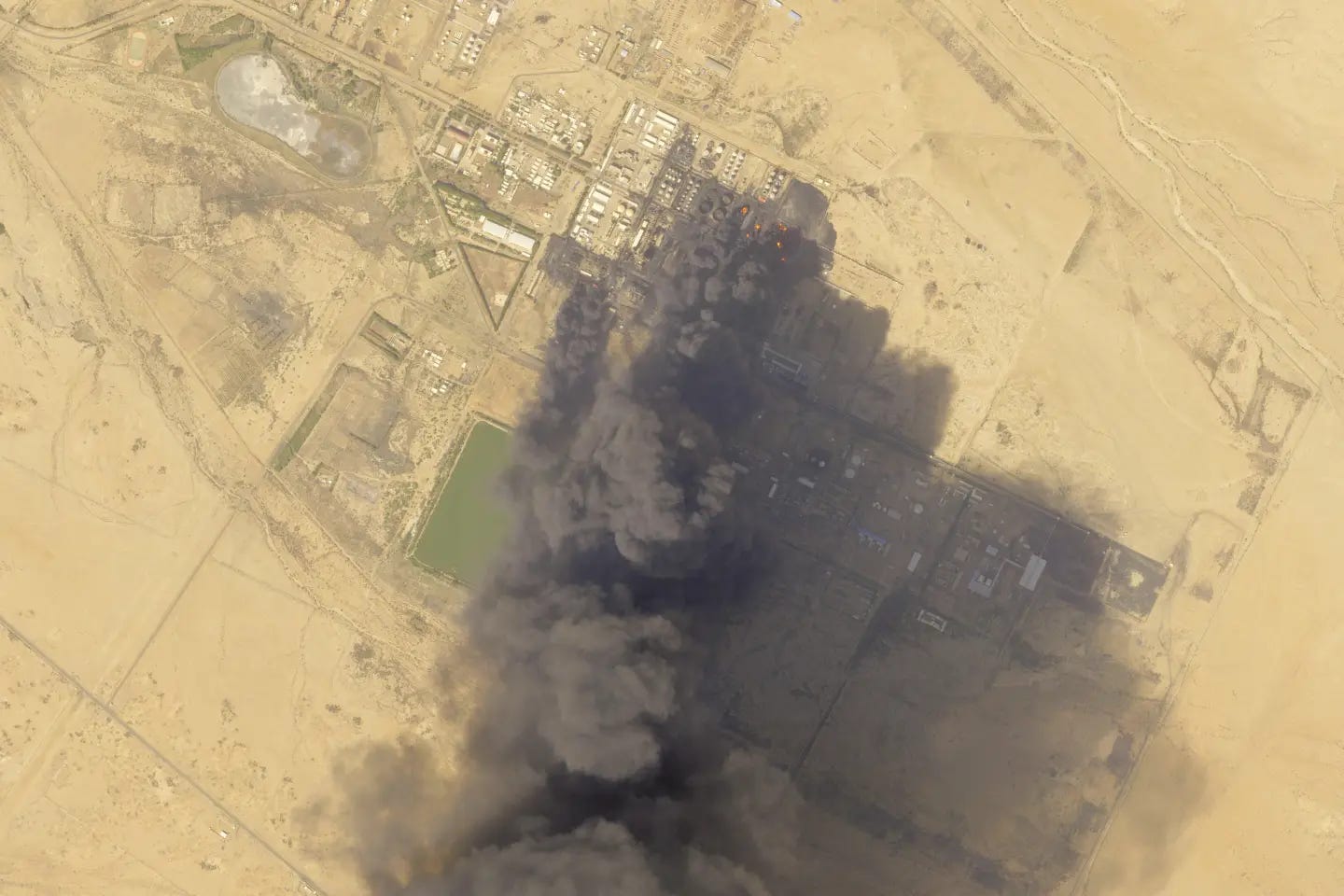Sudan's Largest Oil Refinery Engulfed in Flames Amid Ongoing Civil War, Satellite Images Reveal
DUBAI, United Arab Emirates (AP) — The largest oil refinery in Sudan, located near the capital Khartoum, has been set ablaze amid fierce fighting between Sudan's military and the rebel Rapid Support Forces (RSF). Satellite images analyzed by The Associated Press on Saturday show the sprawling al-Jaili refinery engulfed in flames, with thick black smoke rising into the sky, signaling a significant escalation in the country’s civil war.
The refinery, which sits about 60 kilometers (40 miles) north of Khartoum, is a crucial facility for Sudan, with a capacity to process 100,000 barrels of oil per day. The site has been a target for both sides in the conflict, with the RSF claiming control of the refinery since April 2023. On Thursday, the refinery suffered extensive damage after an attack, as evidenced by satellite images taken by NASA and Planet Labs. The images showed flames rising from multiple locations across the refinery, and oil tanks were visibly scorched.
The Sudanese military, led by General Abdel-Fattah Burhan, quickly claimed responsibility for capturing the refinery, with forces entering the compound and engaging in heavy gunfire. The military accused the RSF of deliberately setting the fire as a “desperate attempt” to destroy Sudan’s infrastructure. The RSF, however, accused the Sudanese military of bombing the refinery with “barrel bombs,” claiming that the military had used old cargo planes for the attack.
Neither side provided evidence to back their claims, but the destruction of the refinery is significant, as it has already contributed to the ongoing economic and environmental crisis in Sudan. The thick black smoke has been carried by the wind towards Khartoum, raising concerns about respiratory issues and long-term health risks for residents. The attack also has serious implications for Sudan’s economy, which depends on the refinery to meet fuel demands. Experts warn that the refinery’s destruction would force Sudan to rely on expensive fuel imports, further straining an already fragile economy.
The refinery is owned by the Sudanese government and operated in partnership with the China National Petroleum Corporation, Sudan’s largest trading partner. Despite the fire’s impact, China has not issued a formal response to the incident.
The escalation of violence in Sudan has not been halted by international mediation efforts. The conflict, which began in April 2023, has already claimed over 28,000 lives and displaced millions. The United Nations and human rights organizations have raised alarm over the growing humanitarian crisis, with reports of severe food shortages and attacks on civilians by both the RSF and Sudanese military forces.
Sudan has been mired in instability since 2019, when mass protests led to the removal of long-time dictator Omar al-Bashir. A brief transition to democracy was upended by a military coup in 2021, leading to the ongoing civil war. The conflict, rooted in ethnic and political divisions, has brought the country to the brink of collapse, with widespread famine and violence sweeping through the region.
International actors, including the United States and the United Nations, have called for an immediate ceasefire and urged both sides to refrain from actions that could worsen the already dire situation, particularly the destruction of critical infrastructure like the al-Jaili refinery. The conflict’s ongoing toll on Sudan’s people continues to escalate, with no end in sight to the bloodshed and destruction.


